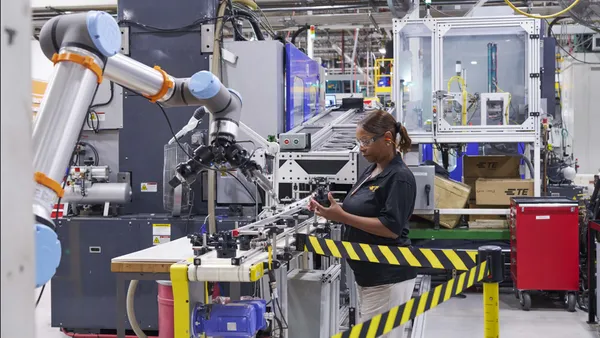With the announcement of new tariffs, companies with global supply chains are facing increased complexity and uncertainty. In addition, extreme weather fueled by climate change is reshaping supply chains and operations, bringing new risks and challenges. Operations teams are facing unprecedented obstacles in keeping costs low, maintaining quality and on-time delivery. Fortunately, the business case on climate action is clear: cutting waste and energy use saves money, employees and investors expect climate action, and sustainability is increasingly becoming a key differentiator in winning new business.
Today, climate action isn’t just a trend – it's a business imperative. According to The Economist, 99% of executives say that climate change has already affected their supply chains. In 2024, the U.S. experienced 27 billion-dollar disasters and $182.7 billion in resulting economic losses.
In response, leading companies are aligning decision making, funding, metrics and accountability across key business functions such as operations, procurement and finance to uncover major gains and to improve resilience.
Preparing for a warming world is crucial for the bottom line. Here’s what the data show:
-
Proactive leadership pays:
- One leading consumer products company found $800 million of savings in utilities costs through energy, water and waste reduction. Consumers value corporate leadership on sustainable packaging and reusing materials, which also helps companies reduce commodity volatility and cut shipping costs.
- Leadership is essential for long-term business viability and to remain competitive. Today 83% of companies report R&D investments in low-carbon products and services.
-
A Climate Transition Action Plan (CTAP) helps companies prepare:
- Collaborating with sustainability teams on Climate Transition Action Plans helps to coordinate action across the company. Resource scarcity, infrastructure vulnerability and quality control are priorities for operations and procurement teams that can be embedded into CTAPs.
- A CTAP will prepare companies to comply with the increase in recommended and mandatory disclosure rules across global jurisdictions.
-
Sustainable innovation drives competitiveness and meets customers’ needs:
- Real revenue opportunities lie in innovation from lower-carbon products and the cost efficiencies associated with them, giving your company a competitive edge in the market. Sustainable products can see an additional 6-25% boost in revenue compared to other products.
- It’s no surprise that that 92% of CFOs surveyed in India, the United States and United Kingdom plan to invest more in sustainability – and more than half of these global CFOs plan to significantly increase these investments.
-
Sending a demand signal to suppliers leads to impact:
- Over 90% of emissions from average retail companies come from the supply chain. Leading companies see results by leveraging the relationships and existing processes of procurement and supply chain teams to facilitate collaboration, incentivize action and educate their suppliers and logistics providers. The result? Nimbler problem-solving during disruptions and more long-term climate resilience across the value chain.
How to turn the data into action for resilience
You can navigate the opportunities to integrate climate and sustainability into your business operations with new tools that are free to use. Alongside Deloitte, Exponential Roadmap Initiative, Oxford Net Zero, We Mean Business and others, Environmental Defense Fund launched the Net Zero Action Accelerator as a free web hub with webinars, videos, tools and pragmatic resources for businesses.
The pause in political momentum has not slowed the core business case for climate action. Responsible businesses are staying the course, underscored by the recent analysis from PwC finding that business climate commitments are on the rise – over 4,000 companies reported through CDP in 2024, a nine-fold jump in five years. Implementing a sustainability strategy that reduces risk, boosts revenue, and saves costs requires integration across the business. Companies that stand by responsible business values to consumers, investors, and employees are better positioned to seize the gains as the net zero economy continues to grow.










